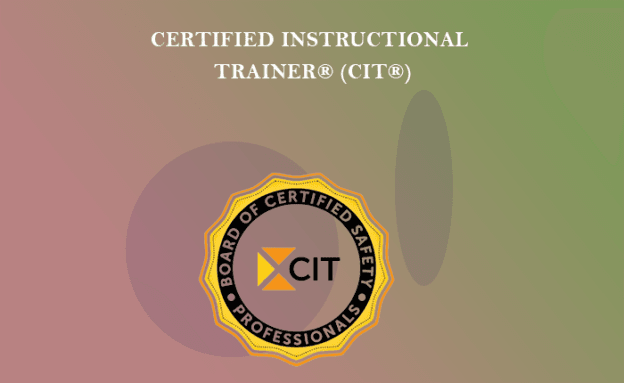Certified Instructional Trainer® (CIT®)

About Course
The Certified Instructional Trainer® (CIT®) certification is designed for professionals who specialize in instructional training and education. It validates expertise in designing, delivering, and evaluating training programs effectively. Holders of the CIT® certification demonstrate proficiency in adult learning principles, instructional design methodologies, and training delivery techniques. This certification enhances career prospects by verifying the ability to create engaging and impactful training experiences, ensuring learners acquire knowledge and skills effectively. CIT® holders are sought after in various industries for their capability to develop and deliver high-quality training that meets organizational objectives and enhances employee performance.
Course Content
Domain 1 Communication and Facilitation Skills
-
Communication techniques, styles, verbal and nonverbal cues, and feedback
-
Literacy considerations (read and write) for the learner
-
Technology applications appropriate for both the learner and the instructor
-
Instructional leadership methods (e.g., adult learning theory and audience engagement)
Domain 2 Needs Assessment
Domain 3 Course Design
Domain 4 Course Development
Domain 5 Course Implementation
Domain 6 Trainee Assessment
Domain 7 Course Evaluation
Earn a certificate
Add this certificate to your resume to demonstrate your skills & increase your chances of getting noticed.

